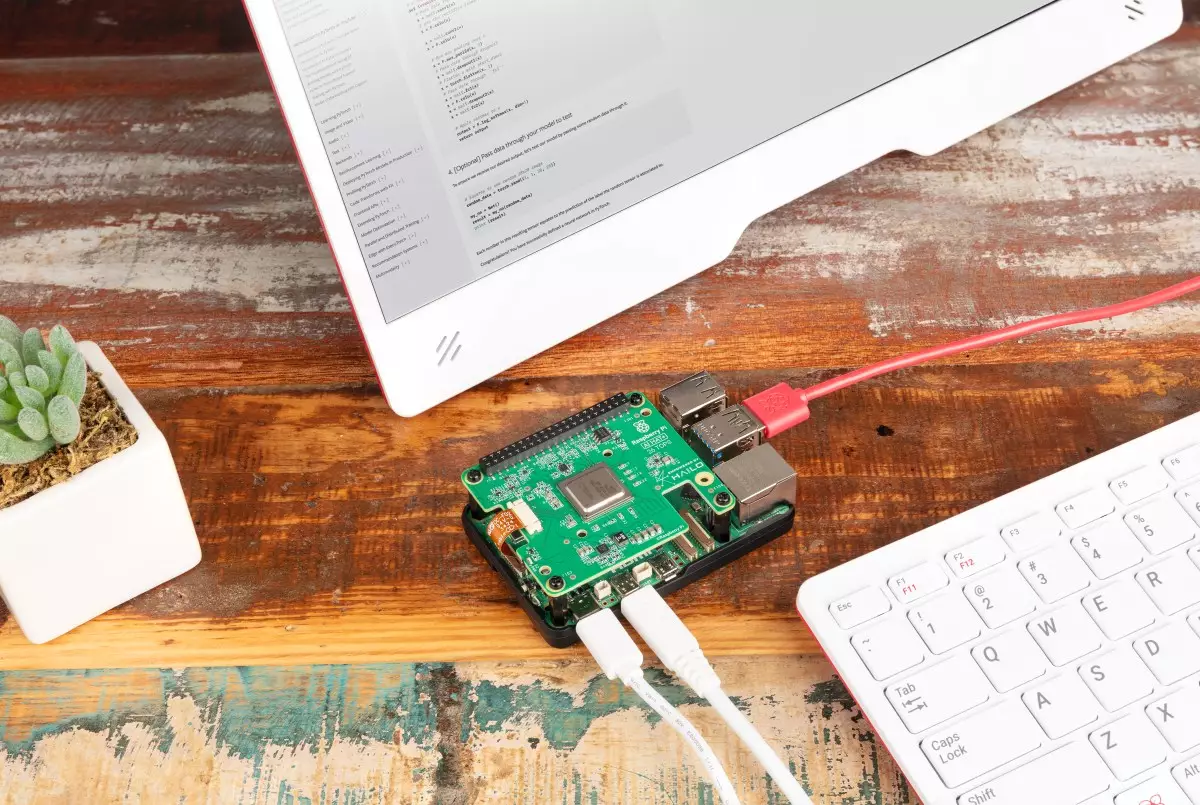In recent months, Raspberry Pi has made headlines with its swift introduction of new products, showcasing the company’s commitment to innovation in the realm of single-board computing. Raspberry Pi is often lauded for its affordability and versatility, making it a cornerstone in the toolkit of hobbyists, educators, and professionals alike. The Raspberry Pi 5 serves as the flagship product, offering an expanded feature set that empowers users to explore a wider array of applications.
The introduction of the Raspberry Pi 5 has marked a significant shift from its predecessors, as it boasts enhanced capabilities, including the important PCIe 3.0 interface. This 16-pin connector opens up a realm of possibilities for attaching various expansion cards, allowing users to customize their systems to meet specific needs. The new products being rolled out aim to take further advantage of this interface, particularly through the use of M.2 HAT+ extension cards.
The term HAT, which stands for “Hardware Attached on Top”, is a clever branding move that communicates the essence of these extension cards. These HATs enable users to extend their Raspberry Pi’s functionality effortlessly. The M.2 HAT+ has gained traction among enthusiasts looking to enhance their systems with NVMe SSDs—solid-state drives that provide dramatically faster data transfer speeds compared to traditional storage solutions.
With the Raspberry Pi 5, users can tap into the power of NVMe technology without sacrificing compatibility or performance. The M.2 HAT+ allows for the integration of SSDs in 2230 and 2242 form factors, making storage upgrades a breeze. In an era where speed and efficiency reign supreme, this capability cannot be overstated; cleaning and managing digital resources has never been easier.
The tech community is buzzing with excitement over the recent introduction of the Raspberry Pi AI HAT+, a state-of-the-art add-on that integrates a Hailo inference accelerator. Available in two performance variants, this product highlights Raspberry Pi’s efforts to cater to the growing needs of machine learning and artificial intelligence applications.
Retailing at $70 for the 13 tera-operations per second (TOPS) version and $110 for the more robust 26 TOPS variant, the AI HAT+ presents a compelling option for users interested in edge computing solutions. While it is essential to recognize that this is not a device for extensive training of AI models like GPT, it does facilitate efficient inference, bringing smart computing closer to the user.
The streamlined design of the AI HAT+ should not go unnoticed. Unlike its M.2 HAT+ counterpart, it comes without an M.2 interface, which signifies a focused and simplified approach to integrating AI functionalities. Users who explore machine learning initiatives can expect significant benefits from these accelerators as they work to develop and deploy intelligent applications.
Raspberry Pi is also venturing into the storage market with its own branded NVMe SSDs. Available in 256GB for $30 and 512GB for $45, these drives are strategically priced to be competitive while ensuring compatibility with the Raspberry Pi 5. In a world where e-commerce deals can often make products seem deceptively affordable, knowing that you are purchasing a device guaranteed to work seamlessly with your Raspberry Pi is a reassuring proposition.
Moreover, the bundling of SSD kits, combining both the M.2 HAT+ with a selected SSD, caters to new users looking for an all-in-one solution. Priced at $40 for the 256GB option and $55 for the 512GB, these kits provide a straightforward entry point for enthusiastic newcomers, removing the guesswork involved in component compatibility.
As Raspberry Pi continues to expand its product lineup, the possibilities for innovation seem boundless. The introduction of the Raspberry Pi 5, coupled with the strategic addition of new accessories like the M.2 HAT+ and AI HAT+, positions Raspberry Pi as a leader in creativity and efficiency in single-board computing. While they may not revolutionize the industry, these products signal a growing momentum that will undoubtedly lead to further exploration in the realms of education, industry, and hobbyist projects. Raspberry Pi is making it clear: they are not just a platform; they are an evolving ecosystem.

